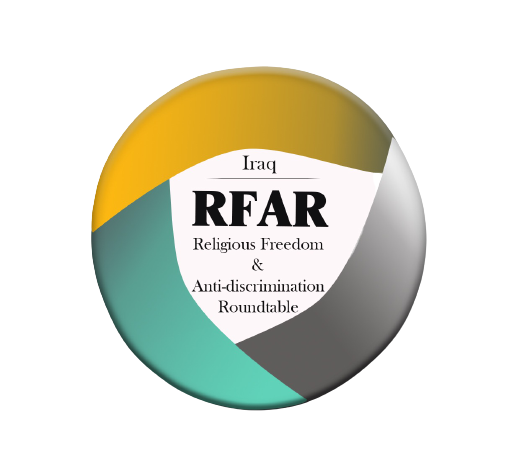What we learned from the Iraq Roundtable for Religious Freedom and Anti-Discrimination (IRFAR) Working Meeting
Saturday: Aug 14, 2021
Salah Ali/ IRFAR General Coordinator
Studies show that societies which experience an extended violent environment inherit a mentality which influences their decision making in daily life. The result is that often people are more inclined to use violence as a method resolve problems or conflicts. In the past, violence was considered as one of the most desirable ways to pursue changes in Middle Eastern countries. The situation in Iraq and other places such as Syria, Yemen, and Lebanon are some examples where both people and government use violence as a means to achieve their political, religious and ethnic ends.
As members of the Iraq Religious Freedom and Anti-Discrimination Roundtable (IRFAR) from our experience we have realized that the Roundtable method of working is an effective and productive way to pursue changes in society without resorting to the use of violence. This method of work is vital for post-conflict societies and specifically for the societies in the Middle East.
We have found the Roundtable to be effective because of a few key principles that shape its work. These provide the framework to serve as an effective convening platform that can be the launching ground for collective action.
Human Dignity and Mutual Respect: The IRFAR exists to promote religious freedom for everyone and includes people from all religious traditions or none who share a commitment to religious freedom grounded in human dignity and mutual respect for all people.
The Roundtable is an important mechanism for a wide range of actors to encounter the challenges that particular communities face including religious freedom restrictions, human rights violations, and social injustices.
Collaboration and Coordination: The IRFAR seeks to promote religious freedom through coordinated collaborative efforts that address challenges and promotes to religious freedom through collaborative actions that have an impact in law and in culture.
Different religious groups in Iraq faced government and society hostilities that forced them to either leave the country, be displaced internally, or to attempt to live in challenging circumstances in their original places.
In order to prevent such violence, the Roundtable members are collectively striving to consolidate efforts nationally and internationally to find the best approaches and practical solutions for the identified issues. The Roundtable network is able to support local and INGOs to better promote religious freedom and prevent discrimination.
Also, the Roundtable functions as a center for consultation between civil society and the government. As a Roundtable we are able to be a collective voice to support positive steps the government may be taking or seek to change the attitudes or practices that generate religious inequalities. Through these efforts we can work to decrease the structural violence that is intentionally or unintentionally practiced.
Dialogue and Debate: The IRFAR works to develop a culture of dialogue and debate that promotes religious freedom and seeks to prevents against discrimination without resorting to coercion or conflict.
The Roundtable creates a space that facilitates generating practical solutions for the highlighted issues. This is one of the key advantages of Roundtable discussion. They are facilitated in a way so that the general atmosphere enables creativity in thinking positively, particularly when the Roundtable participants are seeking specific solutions.
If the work of a Roundtable is well managed it could play a great role in advancing religious freedom and preventing discrimination on the local, national, and even international level.
Recent Publications from IRFAR Members

